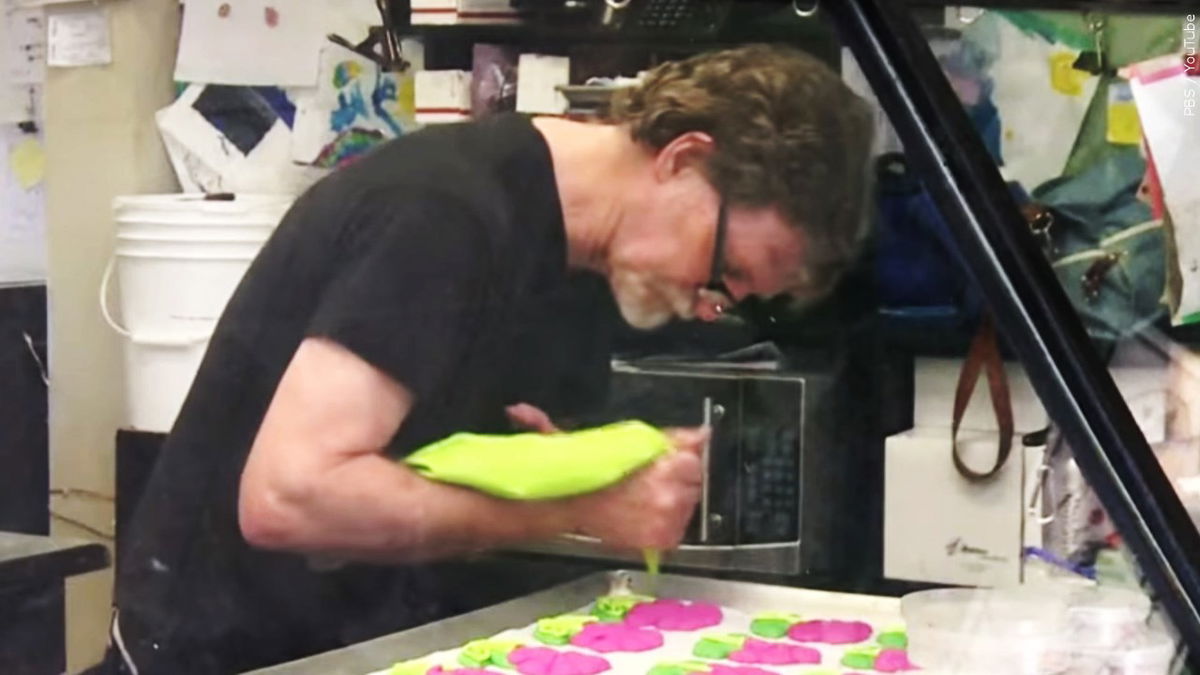Colorado justices consider a pink and blue cake’s meaning in a transgender discrimination case

BY MEAD GRUVER
From plain white cakes to rainbow-colored ones, the Colorado Supreme Court considered a variety of hypothetical cake-design scenarios Tuesday as it heard arguments in the case of a Christian baker who refused to make a pink cake with blue icing to celebrate a gender transition.
The case involving Denver-area baker Jack Phillips is the latest of three in Colorado pitting LGBTQ+ civil rights against First Amendment rights. In a previous case, Phillips scored a partial victory before the U.S. Supreme Court in 2018 after refusing to bake a cake for a gay couple’s wedding.
The Colorado Supreme Court took Tuesday’s oral arguments in the transgender celebration cake case under advisement without ruling right away.
The case originated when Phillips initially agreed to make a cake for attorney Autumn Scardina but then refused after Scardina explained she was going to use it to celebrate her gender transition.
The case originated when Phillips initially agreed to make a cake for attorney Autumn Scardina but then refused after Scardina explained she was going to use it to celebrate her gender transition.
The Colorado Court of Appeals sided with Scardina, ruling that the pink-and-blue cake — on which Scardina did not request any writing — was not speech protected by the First Amendment.
The Colorado Supreme Court justices asked attorneys for both sides what sort of cake without any writing on it a baker could refuse to make while the Colorado Anti-Discrimination Act prohibits refusing to provide services based on protected characteristics such as race, religion or sexual orientation.
They also asked if Phillips would have agreed to make an identical cake for different purposes, such as to celebrate the birth of boy-and-girl twins.
“It’s only when they get into the home of the consumer that they take on the message. They are the same cake. It’s all a pink cake with blue icing,” Justice Melissa Hart told Phillips’ attorney, Jake Warner, in suggesting other, hypothetical scenarios involving pink-and-blue cakes.
Warner maintained the cakes Phillips creates are protected free speech. He told the justices that what Scardina told Phillips about the purpose of the cake mattered for his free-speech rights.
“It became a different message when Phillips was told it was to celebrate and symbolize a transition from male to female,” Warner told the justices. “Cakes can appear facially identical and you can have facially identical content that expresses a different message.”
Warner drew a line, however, and said Phillips would have to sell pre-made cakes, including pink cakes with blue icing, to anyone for any purpose.
Justice Maria Berkenkotter asked Phillips if he thought a white cake with white frosting could be refused to be made for a customer who said it represented gender transition.
“But that cake is lacking the symbolism,” Phillips said. “The message is not as clearly in the cake as we have here.”
Later, Justice Monica Márquez asked Scardina’s attorney, John McHugh, if Phillips would have agreed to make a rainbow-colored cake similar to rainbow designs used to promote LGBTQ+ identity.
“They would happily make the same cake for other customers,” McHugh said, referring to previous statements by Phillips.
Cake features were not a factor in Phillips’ partial victory in the gay couple’s case against him before the U.S. Supreme Court, which found the Colorado Civil Rights Commission was unfairly dismissive of Phillips’ religious beliefs.
Another recent case in Colorado centers on freedom of speech and LGBTQ+ rights. Last summer, the U.S. Supreme Court ruled in favor of a Colorado graphic artist who didn’t want to design wedding websites for same-sex couples.
Graphic artist Lorie Smith, who like Phillips is represented by the Alliance Defending Freedom, challenged the same state law. The court’s conservative majority said forcing her to create websites for same-sex weddings would violate her free speech rights.
Both sides in the dispute over Scardina’s cake order think the new U.S. Supreme Court ruling bolsters their arguments.
